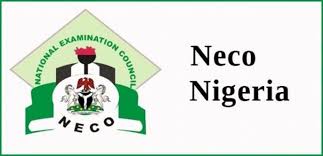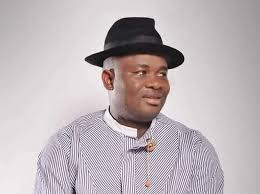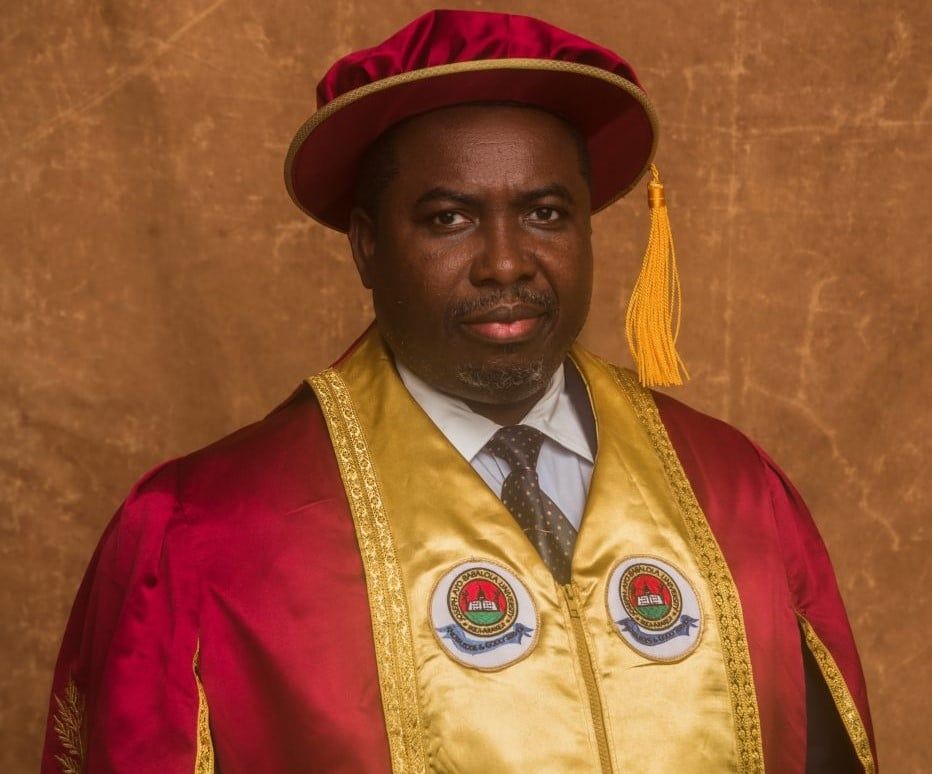When he addressed staff of the Independent National Electoral Commission (INEC), shortly after he was sworn in as the 14th Chairman of the commission by President Bola Tinubu, Prof. Joash Amupitan pledged highest standard of integrity and transparency.
“I want to give you that assurance, and also to let you know that our mandate is very clear as INEC. INEC has a constitutional responsibility and a statutory mandate. And what is it? To deliver free, fair and credible elections that reflects the will of Nigerian people,” he told the staff.
This, to many Nigerians, is mere rhetoric. It was not the first time INEC Chairman would be making such promise but after that it turned out to be a failed promise. The INEC Chairman confessed that many people, including some INEC’s National Commissioners said they don’t envy his new assignment. This is indeed obvious fact.
INEC which he will preside over its affairs for the next five years is battling trust deficit. Every election conducted by the commission since 1999, expect the 2015 presidential election that brought late President Muhammadu Buhari into office in 2015, ended in court. The little trust the people had on the commission was later erased after the conduct of the 2023 general elections.
Stakeholders react
National Secretary of the coalition platform, the African Democratic Congress (ADC), Ogbeni Rauf Aregbesola, told the European Union Election Observation Mission, that INEC betrayed the trust of Nigerians by its failure to transmit the result of the 2023 presidential election.
Aregbesola told the delegation led by Chief of Mission, who is also a member of the European Parliament, Mr Barry Andrews, that the final results declared by INEC were inconsistent with the votes cast, “which frustrated the will of the electorate and diminished public confidence in Nigeria’s democracy.”
INEC’s failure to transmit the result of the election to INEC Result View (IReV) portal real time, as promised by his predecessor, Prof. Mahmood Yakubu, was indeed, a betrayal of trust. The commission had assured Nigerians that polling unit results would be uploaded to the IReV immediately after collation.
This turned out to be a betrayed trust. The commission blamed this on technical glitch. Unfortunately, this explanation failed to convince Nigerians, because out of two sets of elections conducted on February 25, 2023 – presidential and National Assembly only the presidential election was affected by INEC’s technical glitch while that of the National Assembly was not! Another challenge the new INEC Chairman faces is his ethic nationality.
Though he is from Kogi State, North Central Nigeria, he is Yoruba by tribe, the same ethnic nationality with President Tinubu. In a country where tribe and religion often influence socio-economic and political decisions, Amupitan’s ethnic origin cast shadow of doubt on his promised neutrality.
At his screening two weeks ago by the Senate, Prof. Amupitan assured Nigerians that INEC under him would be a neutral umpire under his watch. This is not new, because all his predecessors gave the same assurance.
He repeated this last Thursday when he addressed INEC staff, and assured that integrity of elections is non-negotiable “Let’s restore back the confidence of every voter that whenever there is an election, their votes will count, so that we can address this in your voter apathy,” he had told the ” he had told the commission’s staff.
Background as asset
Amupitan, no doubt, has rich resume. As a lawyer, a law teacher and Senior Advocate of Nigeria (SAN), the new INEC helmsman could be said to be well positioned to deliver credible, free and fair elections.
He told the lawmakers that he has been part of the nation’s electoral system, having served as consultant a number of times, to the House of Representatives on review of election laws.
This, no doubt, is evident that he is acquitted with Nigeria’s electoral process. But election management is complex and challenging. There are many variables at play, especially in a country like Nigeria where the political class always device clever ways to frustrate every reform that would enhance the election process.
He may be the first Senior Advocate of Nigeria (SAN) to head of nation’s electoral body. But before him were two judges who served as chief electoral officers, the likes of Justice Victor Ovie-Whisky, who was Chairman of the second republic Federal Electoral Commission (FEDECO) in 1983, and Justice Ephraim Akpata, the first INEC Chairman who conducted the elections that gave birth to the present civilian dispensation.
Notwithstanding, the outcome of the 1983 general elections supervised by Justice OvieWhisky, and the 1999 which Justice Akpata superintend, still ended in the courts. One therefore wonders if it is the system that corrupts the nation’s chief electoral officers or they are the ones who corrupt the system!
On June 9, 1998 when he announced the disbandment of the National Electoral Commission of Nigeria (NECON), General Abdulsalami Abubakar (retd.) promised Nigerians an electoral body that would not only be independent in name but in its operations.
INEC therefore, was conceived to be a commission that would be “independent, open and transparent”, without government interference. And this ought to include the appointment of its chairman and commissioners as well as funding.
Unfortunately, INEC is only Independent in name, because both appointment of its officials and funding are subject to the approval of the executive.
That is why many Nigerians take Amupitan’s promises with a pinch of salt. Even during his meeting with INEC staff, he paid tribute to Tinubu for his appointment. His swearing in by the president was witnessed by the President of the Senate, Godswill Akpabio and Speaker of the House of Representatives, Tajudeen Abbas.
There have been calls that the president should be stripped of the powers to appoint INEC Chairman and commissioners. Former President Goodluck Jonathan who played the same role in 2010 when he appointed Prof. Attahiru Jega, proposed that the responsibility of appointing electoral play complementary roles.
ASUU has never claimed to be superior or that our knowledge is unassailable. What we are saying is that we are open to whatever ideas and suggestions that they have and we just hope that the government can listen and see what is reasonable.
Another angle to this is university lecturers’ salary. It is said that your salaries and allowances have stagnated for about 16 years. To what extent is that true?
Well, we had an agreement in 2009 which had two tables of salaries. The second table was to be used after three years and was the basis for the next renegotiation. Since 2009 till date, the government has not gone back to that table. And so, when we argue that our salary has not changed, we are saying that what we agreed with you as basis for further increase in our salary, you have not gone back to it in the last 16 years. That is the point we are making. Of course, the government would argue that they have given minimum wage. It was an award. They gave N40,000 across board and that is not how salary can be assessed and scientifically arrived at.
To what effect has this condition of service and poor facilities affected the JAPA syndrome among university lecturers?
It is obvious. Former Vice Chancellor of UNILAG, Prof Ogundipe, said about 200 lecturers left the university in his time, and you see that number increases every day.
Do you have the figure for the whole country?
I don’t have the entire figure. But if you look at what our salaries are today, you will understand why people have to leave. People leave for two reasons. One is that the facilities are not there to enjoy their specialties.
A lot of people have left because of that. And then there are those who have left because of low salaries.
Nigeria pays the least salaries for its academics in Africa. The only country that is ahead of us, before the last is Zimbabwe.Countries like Egypt, Uganda give their lecturers $4,000 equivalent in a month, but what we get here is $320 a month.
How would a Nigerian in Uganda leave and return to Nigeria to earn that because Nigeria is his country to take $320? And then, for us to improve our ranking internationally, we need to have foreign scholars in our system.
How would they come to Nigeria with this kind of salary? Coincidentally, our leaders, including the current Minister of Education, have lived abroad and know what is obtained there. In fact, at our first meeting with him, we asked Dr. Tunji Alausa, at one of our earliest meetings, if our salaries ought to be increased, and he said yes and further said a Nigerian professor should not earn anything less than $2,000.
But he is the one that is even arguing that the 35 per cent increment we have rejected is what it should be. I mean there are many contradictions.
I’m looking at the issue of quality of education. How has this impacted the quality of education given to Nigerian students now?
Of course, our students are not adequately exposed to what they ought to be exposed to. They don’t do the practicals they are supposed to do. They don’t have all the exposures they need. A student is studying Archeology and from the first year to the last, he can’t visit any archeological site in this country, yet they get a university degree. Would you say that is quality? A student is doing Medical Laboratory Science and does not have access to basic equipment like the laboratory facility needed for the course, whether its microscope or whatever. A student is studying Computer Sciences and he does have a computer he is working with from Year One to his graduation. That cannot give quality.
Some of our children in the universities do complain about this…
I am a doctor. I’m a psychiatrist and I can tell you that in Jos, where I work, professors are leaving. At that level and traveling abroad.
You have been able to reach a compromise for now. How hopeful are you that the government is going to meet up to its side of the bargain?
A warning strike is what it is. We have given the warning, and we believe that the government has listened and we are not willing to pass any definite comment yet. But we have suspended the strike so that students can go back to class, and that we are ready for peace.
We have spoken to the government in a very fair and reasonable manner. But we have the capacity to be as tough as inflexible as we can be. We have given the government four weeks; it is something that is in our DNA and we will not hesitate to pull out that traits in us at any time.
Being gentle or talking with them on the table does not mean that we do not know where the streets are; does not mean we cannot set ‘fire’ anywhere if we want to. We have that capacity and we just hope that government will not allow us to go that far.
Besides budget, are you looking at IGR and what do you think will be the solution to funding of education in Nigeria?
I know that the government has the capacity to fund education in Nigeria. If you look at the area of waste, you will find that the government has money to fund education. In the last one or two years, state governments have quadrupled what they used to get.
It is in this country that we were told that governors have spent N900 billion on entertainment. Some N30 billion, some N20 billion and all that. How can we say that they can’t fund education? We believe they can and we are insisting they should.
The Union and stakeholders are clamouring for the implementation of the Mimmie Briggs panel report. Do you believe its implementation will bring the way forward?
It is the basis for the harmony for this current salary structure. Our members are tired of the current structure and we believe our increment in salary is central. In fact, let me tell you, if the government agrees to do everything that we are asking, but our salaries not improved, we would still go on an action.
You have just attended the inaugural of Hassan Sunmonu Centre for Leadership and Governance titled “Democracy and the Dynamics of Development in Africa.” What is your view about the pioneer NLC President in Nigeria, Alhaji Sumonu, who is one of the trustees of the NLC?
Any time that Comrade Sumonu is talking to you, he will talk about the place of God in what he is doing. That has been one of his trademarks. And I believe that the Centre will benefit from the fear of God for which he is known.
ASUU will continue to stand with the centre to ensure that these principles that our trustees, our father has fought for over the years are sustainable.
There is something that I have not said about our Trustee, Hassan Sumonu since I started interacting with him is that he is a very religious man.
What is your view on the relevance of the leadership centre?
In our union when he sits as a Trustee, we talk about transparency, accountability, courage, trust, patriotism, teamwork, solidarity with our comrades in the labour union. These are the principles that have been tested and we have found them to be that we need to remain relevant.
One person cannot work without the other. Unless we are accountable, unless our leaders are accountable, unless we work with transparency, we cannot succeed in this country.
Like someone said some time ago, we have liberated democracy, but we have not been able to liberate the democratic process. And that is the challenge that we have today in this country.
Where you want to start election, you keep money for the judges and others to rig the election. One follows the other. It is just sad.














